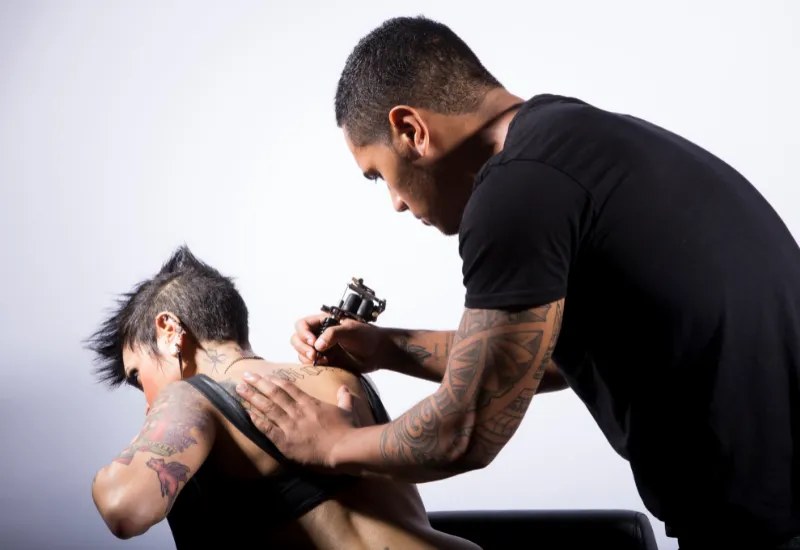Tattoos have been a form of body art for many decades, but it has gained extreme popularity in the past few years. People often get tattoos of names, things, or designs meaningful to them. A tattoo machine is used, which works similarly to a sewing machine. It has one or more little needles that repeatedly pierce the skin to inject a dye. This dye or ink can be of any color: black, blue, red, green, etc. The design and colors depending upon your choice.
While there are no restrictions against getting a tattoo, a few health risks should be considered before the procedure. These risks include:
- Allergic reaction: Dyes or tattoo ink may cause an allergic reaction in your skin, even if you have had tattoos before. It manifests in the form of a rash or itch. It is a major risk for hypersensitive adults. Before you get a tattoo, it is better to test the ink in a small patch and leave it for half an hour. If no allergic reaction occurs, it means you are safe to go.
- Skin infections: Because your skin is continuously pierced during the tattoo procedure, the risk of getting a skin infection increases. It can also happen after the procedure. Skin infection can present with multiple symptoms such as rash, redness, itching, pus discharge, etc. Medical attention is required to avoid complications.
- Swelling or burning sensation: You may feel swelling around the tattoo area after getting a tattoo. The burning sensation is also common in the region where you have gotten inked. It can worsen if you expose it to harsh sunlight or chlorinated pool water.
- Granulomas: Granuloma is inflamed skin tissue that may form around the tattoo site. Inflammation of skin may also present as small nodules around the inked region.
- Keloids: Keloids are slightly raised areas of skin that resemble your skin color. You may notice them after getting a tattoo. They are painless but may become a cosmetic problem. Scarring may also occur after getting a tattoo, although it is not common.
- Bloodborne diseases: If the equipment or needles used for tattoo procedures are contaminated or unsterilized, you may be at risk of contracting a bloodborne disease such as hepatitis B, hepatitis C, and HIV.
- MRI complications: Tattooed individuals may experience pain or burning at the tattoo site while getting an MRI. This is frequently observed in those adults who are heavily tattooed all over their bodies. It may not be an issue if you have one or more small tattoos.
How to Prevent These Risks?
Before getting a tattoo, make sure that you do not have a pre-existing skin condition or infection. Choose the site for your tattoo carefully. If you have low pain tolerance, it is best to avoid getting a tattoo over bony areas. Also, remember that weight gain or pregnancy may disrupt the design of your tattoo depends on its location.
Always make sure that the tattoo artist you are getting it from is licensed and trained to perform this procedure. An experienced tattoo artist will handle any skin-related emergency well if it occurs. You may also inquire about the equipment, tattoo ink, and other things that may be relevant to the procedure. Sanitization and disinfection of undisposable materials should also be kept in check. It is important to avoid risks of skin infections and blood-borne diseases.
The aftercare of your tattoo is just as important to avoid any complications. Keep your tattoo away from harsh sunlight exposure or environmental irritants. Gently wash the site of your tattoo with soap water and pat it dry. Avoid rubbing the area. It is also important to moisturize that skin area using a lotion or cream. Wear light outfits and make sure that your clothes do not stick to the freshly tattooed site. It takes almost two weeks for a tattoo to heal, so take extra precautionary measures during this period to avoid irritation or skin infections.
If you develop an allergic reaction, skin infection, or a blood-borne infection after getting a tattoo, seek immediate medical attention so that it can be treated at an early stage.
Visit cura4u for further details on medical conditions, diagnostic tests, and online consultation. Register yourself and your loved ones today for optimum healthcare services!












